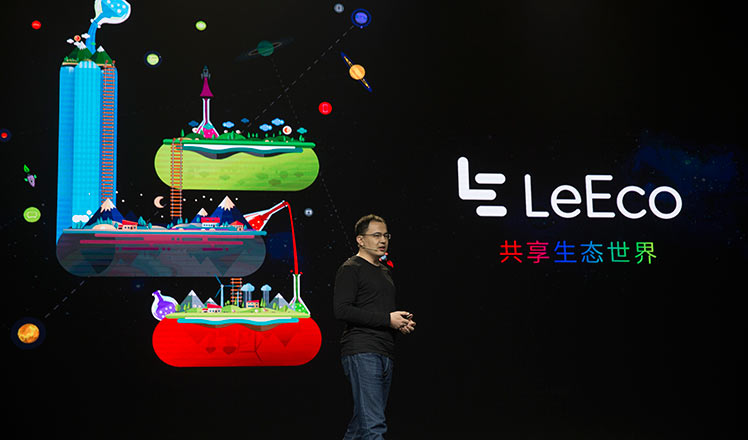East Coast, Midwest hospitals get patients from China
Updated: 2016-04-15 12:12
By Amy he in New york(China Daily USA)
|
|||||||||
US hospitals on the East Coast and in the Midwest are getting their share of patents from China seeking medical attention.
Boston-based Massachusetts General Hospital (MGH), the teaching hospital of Harvard Medical School, said it sees hundreds of Chinese patients a year who travel from China to get second opinions on diagnoses or treatment for illnesses.
"We see thousands of patients from around the world - China is one of our main ones at the moment - and some patients come here simply because of the reputation," said Dr Andrew Warshaw, senior consultant with international clinical relations at the hospital.
"Some patients know us as the largest and primary teaching hospital of Harvard Medical School, and our faculty, our physicians here are almost all faculty members at Harvard Medical School," he said. "There's a general aura of quality and expertise."
The hospital and research facility, among the largest and most prestigious in the US, have hired Mandarin-speaking staff to accommodate patients who come through word-of-mouth recommendations from past patients or referrals from hospitals in China with which MGH has relationships.
Warshaw said that most of the Chinese patients who come to MGH do so for second opinions on cancer, or for cancer-related treatment. The hospital does not have data on the types of illnesses that the Chinese patients go to MGH for, but anecdotally, he said that there are many cases of lung cancer, liver cancer or gastric issues.
He said one reason why US hospitals may be seeing an increase in Chinese patients is that there are still not enough hospitals in China to treat the large population.
"As the Chinese health system matures, more patients are being diagnosed with cancer and, of course, that increases the number of those who might be seeking care outside of China. Some of that is simply that they want to have care here at the Massachusetts General Hospital, because they know about us," he said.
"Some of it may be that they have not gotten the answer that they desire within the Chinese health system, and are looking. We can't always do more than that - it's not that we can do miracles. We can often do more than can be done at a community hospital in China," he added.
Jonathan Torrens-Burton, an operations administrator at the Mayo Clinic in Rochester, Minnesota, said hospitals in China are overwhelmed by demand, and there are more wealthy Chinese who can afford to seek treatment outside of China.
"I think it's partly down to patients who have the means to travel abroad, and seek what we'll call 'hope and healing overseas.' I think the economy in China has allowed people to seek care overseas because they're not finding the answers that they require within their own country," he said. "It is a self-pay effort when they do come - some do have insurance, but the majority are paying out of pocket."
The Mayo Clinic, like MGH, mostly sees patients for second-opinion cases and oncology consultations, and does not track the number of patients they see from China or their ailments.
According to Torrens-Burton, the patients use concierge medical travel agents, who help them navigate appointment booking, compiling documents and records, and making travel arrangements.
The University Medical Center of Princeton in Plainsboro, New Jersey, created a similar program to meet the needs of Chinese patients.
The executive health program is a concierge service established last July. It mostly sees patients for preventative care, according to Kristen Goehrig, customer relations manager at the hospital. Patients complete a 30- to 35-page health questionnaire prior to arriving that determines the kind of testing they need. After doctors review medical records and the questionnaire, they suggest testing.
"We think that because of the reliability of what we do and the quality of it that people would value it, and they seem to be," Barry Rabner, president and CEO of the hospital. "We're pretty pleased with how that's going. We're looking at providing other healthcare services over time, but we want to do it slowly so that we get it right."
The program so far has seen five patients from China, but Goehrig said the hospital anticipates the number will steadily increase.
"There is still a meaningful number of people in China who don't trust the healthcare and delivery system quite enough. They're not certain about the reliability of the information they get or just the quality of the care they receive, so they go outside the country for care," said Rabner.
In Maine, last July the Central Maine Medical Center and state officials announced that a former shoe manufacturing plant in Auburn will be turned into a five-star facility for Chinese traveling to the US for treatment. An agreement was reached with Beijing-based Shengtong Group of Beijing, which will invest $40 million to redevelop the factory into a hotel destination for wealthy Chinese who would recover at the hotel after receiving medical treatment from Central Maine Medical Center in Lewiston. It can house 5,000 guests, according to officials.
amyhe@chinadailyusa.com

 Top 10 Chinese brands that grow the fastest
Top 10 Chinese brands that grow the fastest
 Best Chinese paintings that reveal the beauty of spring
Best Chinese paintings that reveal the beauty of spring
 Millions visit charming forested area in East China
Millions visit charming forested area in East China
 PLA navy soldiers on patrol on Xisha Islands
PLA navy soldiers on patrol on Xisha Islands
 8 good books from London Book Fair you can't miss
8 good books from London Book Fair you can't miss
 Kobe Bryant's accomplishments by the numbers
Kobe Bryant's accomplishments by the numbers
 Top 10 Chinese cities with biggest surge in home prices
Top 10 Chinese cities with biggest surge in home prices
 Beijing Hutongs revived in watercolors
Beijing Hutongs revived in watercolors
Most Viewed
Editor's Picks

|

|

|

|

|

|
Today's Top News
Duke alumni visit Chinese Embassy
Marriott unlikely to top Anbang offer for Starwood: Observers
Chinese biopharma debuts on Nasdaq
What ends Jeb Bush's White House hopes
Investigation for Nicolas's campaign
Will US-ASEAN meeting be good for region?
Accentuate the positive in Sino-US relations
Dangerous games on peninsula will have no winner
US Weekly

|

|









